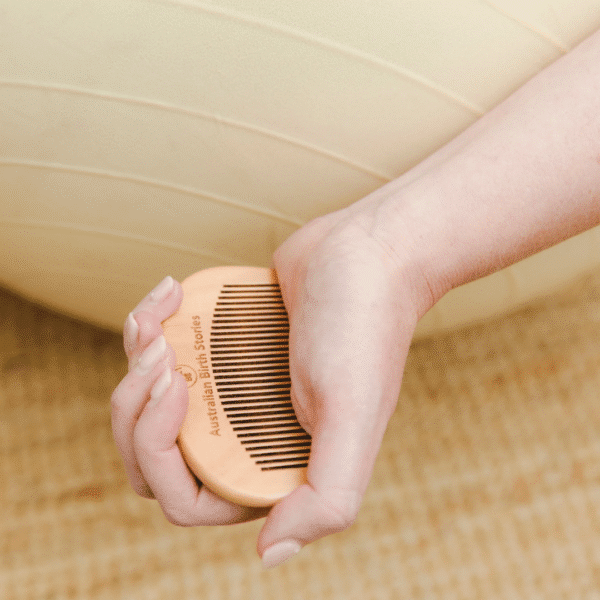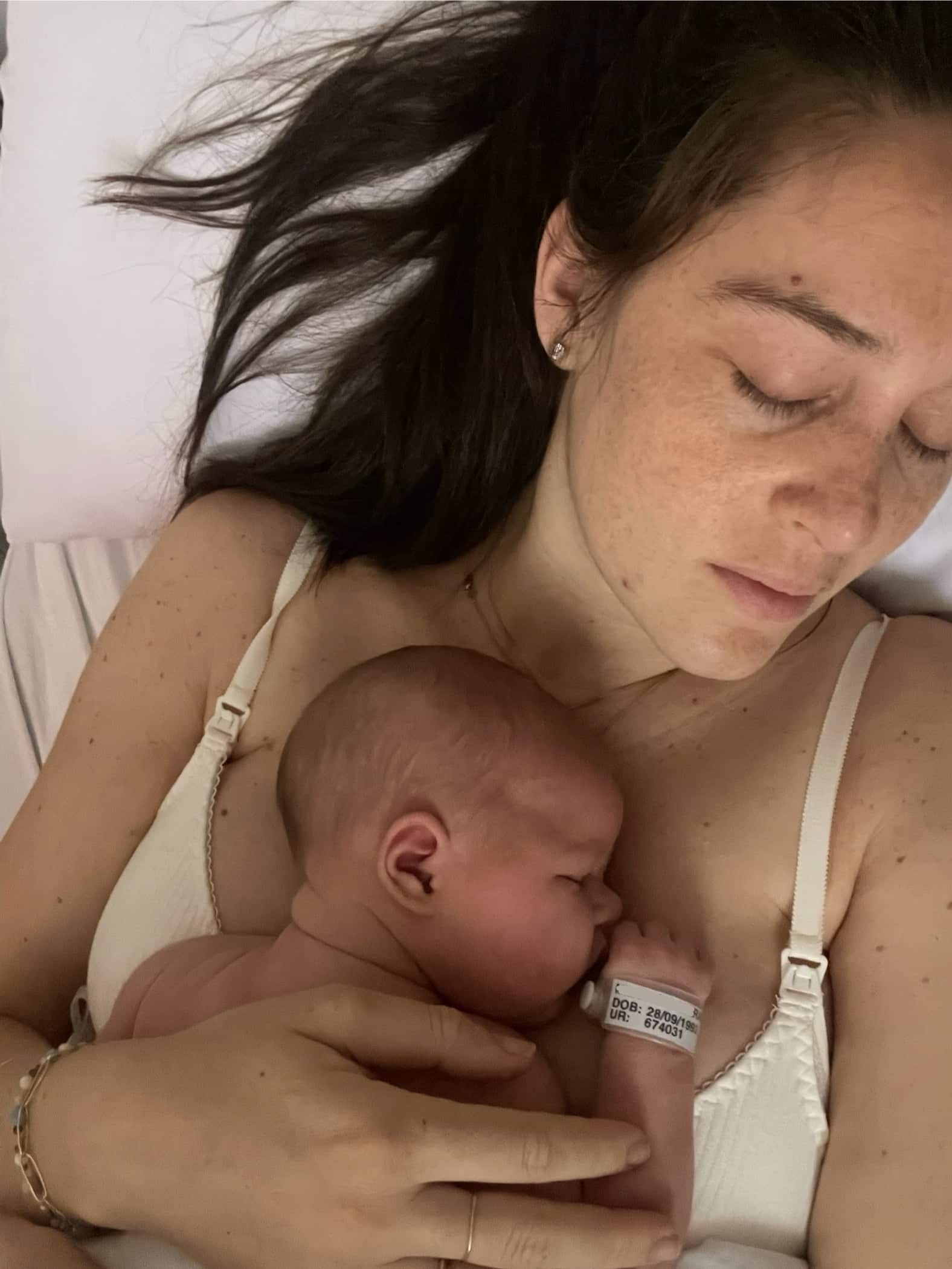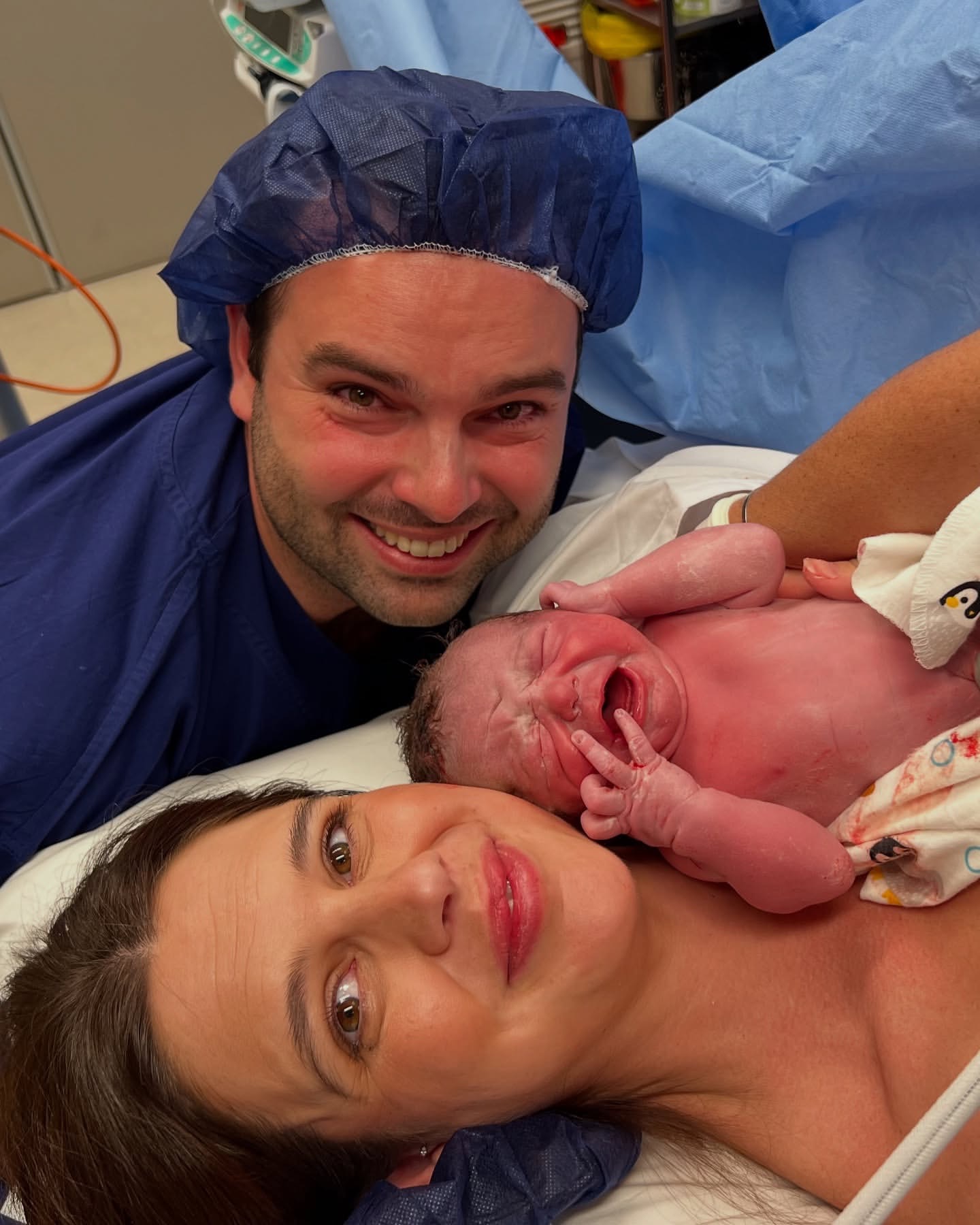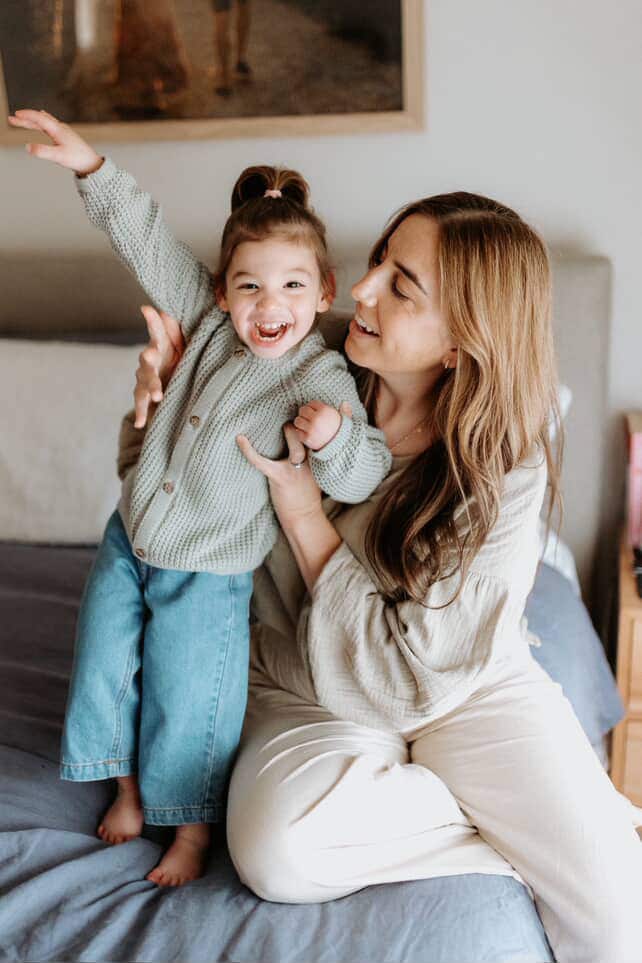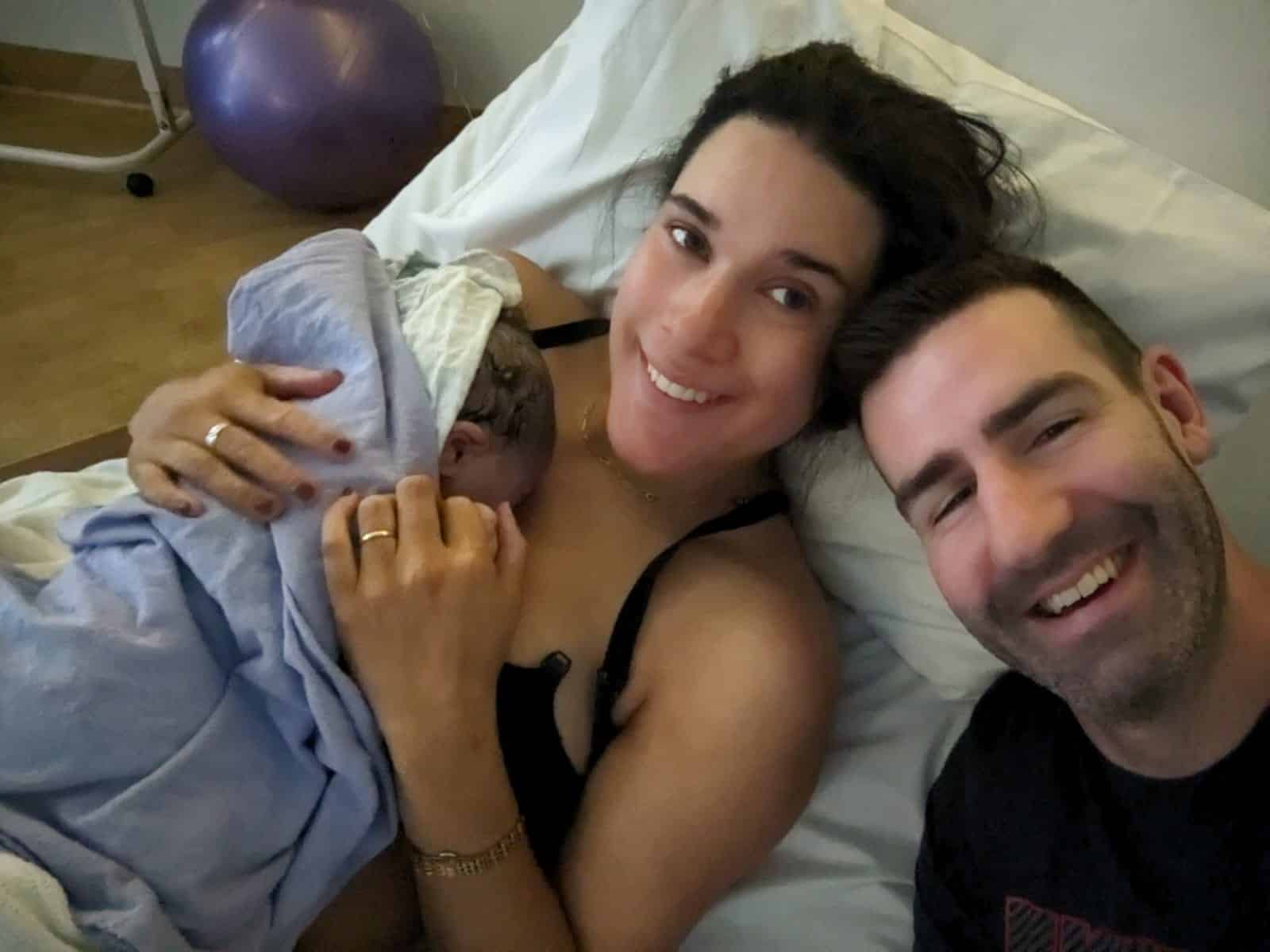Podcasts Allison – Pregnancy with autism and adhd
EPISODE 400
Allison – Pregnancy with autism and adhd

“My expertise is understanding the relationship between music and the brain. Over the last couple of years I’ve been focussed on educating people about how they can use music as a tool for soothing and co-regulating and for coming out of survival mode. Music and the brain are inseparable; the brian is a musical organ. Music is one of the best tools to soothe our children and ourselves. I started studying neurological music therapy before I realised I was autistic.
“I didn’t feel depressed but I couldn’t think or function. Because I had two small children, doctors told me I had postnatal depression. I was shutting down, I was mostly non-verbal, and I had a really high sense of self so I didn’t have a low sense of value; I felt strong but I couldn’t function. I was at my deepest, lowest point. With my work I started to feel the need to focus on neurological functions. Amongst that my first child received their autism diagnosis and then I did, too.
“Our children are the first generation that are in the era of neuroscience and we understand the brian; they’re the first one to go down the path of identifying their neurotype and that leads into adults considering their own neurotype too. It’s a really exciting time.
“I met my husband and we knew we’d be together so we tried to put off having children but we felt her presence and we conceived soon after that. I was very sick – every waking moment until she was born. I sang and played the saxophone every day for as long as I could remember but I was so sick that I couldn’t even really open my mouth to sing. I didn’t know that all of those years of music making were regulating me until I couldn’t do it. I was unknowingly using music as a tool for regulation and functionality. In pregnancy, because I couldn’t use music I started counting in threes and fours in my head, I was getting obsessed with things and I have a very sensitive sensory response so I could feel the pregnancy vibrating in my body; it was extremely overwhelming. I didn’t know I was autistic; I was also a people pleaser and fawning; I was saying yes, and doing all the right things to avoid confrontation. Whilst I was pregnant I didn’t want to seem difficult or ask too many questions but I also had an inherent need to know everything.
“I was floundering but I was also grateful and excited. I also had no knowledge of who I was as an autistic woman and I had no knowledge of what it was going to be like to birth an autistic child. I went through the public hospital and I just thought I’d stay on that path until it didn’t feel right anymore. Looking back there were lots of micro moments that weren’t ideal but they didn’t feel wrong at the time. I saw the same midwife throughout the pregnancy but she only made it to the last hour of labour.
“I have a high pain threshold and I have endometriosis so I thought that was good preparation. I stayed home for 19 hours – walking and getting in the bath and I was still coping with the pain but I was confused that no one had told me about the length of labour. Nothing was changing and the contractions weren’t speeding up.
“I listened to ‘Things Behind the Sun’ by Nick Drake. His music is hypnotic and repetitive and I listened to that one song on repeat for both my labours. His voice and sound relaxed me. I thought I’d want to listen to Gregorian chants to ground me but no, it was Nick Drake that worked for me.
“Sometimes people will make a playlist with music they love that makes them happy. When you’re using music as a tool for physiological support, you need to be really aware of rhythm, tempo and predictability. When you’ve got a playlist with different speeds and tempos, it’s unpredictable and it doesn’t give the body an opportunity to entrain with the music. I was aware that I’d need to wait till labour and try the difference options to see what gelled with me. Nothing changed tempo, nothing sped up or slowed down, and when I heard Nick Drake it was the medicine I needed.
“After 19 hours we went to the hospital because physically I was coping but mentally I was losing control and when I don’t feel in control I tend to spiral. At the time I felt frightened. Once I got to the hospital they were dismissive and sent me home. We went back a second time and I told them I was staying. We were in the room for hours together. I get very overwhelmed by too many bright or artificial inputs but at the time I didn’t know that about myself. I believe my sensory experience and months of people pleasing and not making a fuss culminated in fear of what I thought was fear of labour.
“At around 24 hours I had an out-of-body experience and then I don’t remember anything. I wanted to be active but the midwives wanted me to lie on the bed. My husband tied a bedsheet to a fixture on the ceiling and tied it in a knot and I just held onto it and swayed. I opened my eyes and saw an image of a bull and it was staring at me and puffing out its nostrils; it was strong and powerful and about to charge. I’ll never forget the vision of staring that bull in the eyes and it was like I was absorbing its power and it helped me get through the next 12 hours. In the end I said I wanted some kind of drug and the midwives suggested a caesarean but they weren’t giving me a reason why.
“I asked for pethidine, lay on the bed and twenty minutes later I was pushing her out. No one ever reassured me and told me it was normal, so when Maple was born I was relieved. She was taken away because she had low apgar scores and then I was in shock, I was thankful it was over, I was exhausted. I remember thinking that I could walk on water, I felt like the most powerful being in the world at that moment. It was a deep feeling of empowerment.
“Breastfeeding was the easiest and most special, beautiful, smooth part of my births and postpartum. I never had any issues; I made so much milk, my babies latched. From a sensory perspective it was really hard though. Maple never slept and she never stopped crying but when I fed her, she wouldn’t cry. I had to hold her in the same position every time otherwise she wouldn’t settle. I also had to walk in circles, in the same direction, and sing the same song on repeat. I had to do all these routines for her to settle, latch and feed.
“Music is hands down the best way to soothe anyone. If you’re feeling unsafe or anxious use music to soothe your nervous system. Your nervous system likes a dialect called parentese; which is the way we use our voice when we’re talking to a new baby or a cute kitten or puppy. It’s that dialect where our voice goes up: ‘hello, darling’. Pitch is heightened, and our brain has evolved because we know that higher pitched sounds are safer than lower pitched sounds, evolutionarily we know we’re less likely to be killed by a cat meowing than a tiger roaring. We also put a whispery sound in our voice and we stretch the sounds out; the brain loves long sounds as opposed to short, quick sounds. When we stretch out the sounds and use lullaby voice (not rockstar voice) and the pitch is heightened a bit, that’s how the nervous system is soothed and we inherently do it with our new babies. All cultures do this, we all speak in parentese. Even babies speak to other babies in parentese. There’s a lot of research into music therapy in the birth space and using music with preemie babies, too.
“With Maple, soothing her that way was soothing me and my sensory needs, too. From a tactile perspective, she was always on me, touching me, fiddling with me and the tingling of the let down was very overwhelming of my sensory needs. This all culminated in me being a non-functioning, non-verbal mum a few years later. It was sensory burnout. I was in autistic burnout; I’d been in autistic burnout but I didn’t know and I hadn’t been able to cater to my needs because I didn’t know about them.
“I went through a rollercoaster of feelings after my diagnosis. I had a dream one night where I realised I was autistic; I woke up and sat up at the same time, like in the movies. I lay back down and spent the rest of the night thinking about my entire life from the perspective of autism and everything made sense. It was the most exhilarating moment of my life; the best night of my life. For the following two weeks I had a very visceral experience where these invisible veils were falling off me; about my unreliability, disorganisation, selfishness – they fell off because I was none of those things, I was autistic.
“Every year was getting harder for me. When I was pregnant with Chester I was sick again and I had sensory overwhelm. My babies never had a day sleep – not once. Maple was always in survival mode because she wasn’t diagnosed yet and it was just really hard. I was in my thirties, I was financially secure, I’m in a great marriage, I have family support, I have a successful career. Things were becoming harder but I had no way of getting people to recognise that I wasn’t okay. I couldn’t explain it in words because I couldn’t verbalise it. I was constantly counting in threes in my second pregnancy and I went to a psychologist and they thought I may have OCD.
“It was still being treated as possible postnatal depression. I felt lonely. Things were getting harder as the pregnancy progressed. When I needed to start remembering to take nappies, food, snacks, water bottle, change of clothes with me, I would never remember any of those things so I’d go places and I wouldn’t have anything. When I had to be an organised mum, that’s when the shit hit the fan. To this day my husband does the school lunches, school drop offs, he knows when library day is – I don’t know any of that stuff. I’m no good at being practical. I felt really ashamed.
“I joined a mothers group and I didn’t like it because the only reason we’d joined is because we’d had babies at the same time but I didn’t understand that as a starting point for a meaningful connection. I was so confused about why I felt inherently against the idea of the group but we had nothing in common. But I could see that for them it was really comforting to have people around them who were experiencing the same thing with babies the same age. For me it was so hard. They were making home-cooked sausage rolls and I was forgetting to even turn up to gatherings. I found it so hard, I was really ashamed.
“My birth with Chester was divine and I’d learnt a lot of lessons from my first. I knew that I was good at repeating things in my head because of the numbers so I started saying a mantra: ‘breathing in I relax, breathing out I relax’ and I used that for 12 hours, over and over. It was a beautiful waterbirth in the hospital and I had a midwife that I really trusted. My midwife gave me so much time to talk about anything I needed to talk about.
“We stayed in the hospital for five hours and then we went home and I had the best sleep I’d ever had. Maple was at my parents house and Chester slept from day dot. He was in the crib next to my bed and he slept for ten hours. It was just so incredible, that beautiful night. He never had a day sleep but you could put him in a cot at night and he’d sleep. He didn’t want to co-sleep or be on me unlike Maple who had to be touching me at all times.
“Maple found it difficult to have a new baby because he was a sensory burden. It was very overwhelming for her so all of a sudden things became very difficult because we were trying to manage everyone’s sensory needs. It was around this time that we started to realise that Maple was autistic. Chester was seven months old and I knew that I couldn’t breastfeed again. My husband went to the shop and got formula and a bottle. I knew I was just overwhelmed; I can’t even wear clothes that touch my body – no pants, only flowing dresses or skirts. All the breastfeeding and babies were tipping me over the edge. I have so few memories of Chester as a baby, I genuinely have very little memory of that time and that feels sad. I was completely in survival mode.
“In 2015 I felt completely shut down. I said to my psychologist that there were no words for how painful life was inside me. There was a day when Leyton was playing cricket and the kids were playing at the park and I just wanted to leave. I felt like I needed to get in the car and drive away but I was literally frozen, looking at my feet. In my head I was saying: ‘surviving the moment, surviving the moment’. I thought maybe I should call Lifeline but I couldn’t think of the number, and at that time, I was also a lifeline counsellor. I couldn’t work out how to google it either. It was the lowest time in my life, I had no thinking capacity at all. Eventually I drove home and my husband came home and I called a friend and we moved on from there. That’s the point when I knew something was seriously wrong and seriously risky.
“I’ve never felt a sense of guilt about that. There was no intent other than complete survival. I imagine that a lot of people experience very similar things and then carry the burden of shame. When I started getting the support I needed, which was my autism identity and then neuro-affirming support, I just felt relieved.
“When I realised I was autistic, that’s when I stopped having feelings of being a disorganised mum, a late mum, a mum that doesn’t make homemade food, a mum who does all these things badly. All those things dropped away and that was the beginning of me practising deep acceptance of who I am and that led to enormous changes in my life.
“Three months ago I wasn’t planning on conceiving and didn’t know I was pregnant. I assumed I was menopausal because I did a pregnancy test and it was negative. And then I stopped bleeding. It didn’t occur to me that a negative pregnancy test could be wrong because I didn’t feel sick at all, if anything I felt more energised. I felt great. When I miscarried and I know I miscarried because it landed in my hand. I could see this being and I was shocked to the bone. I was frozen. Thank goodness I didn’t know I was pregnant because I’m not in a position to be pregnant again, I’m not open to that at all. If that pregnancy was positive I would have freaked out. I was so pleased I didn’t know. But then what I realised is that over the following two weeks, what I thought would be relief turned to so many different emotions, I felt an immense sense of loss, I became aware that I was censoring my emotions, could I even call it a miscarriage? I had all these questions.
“It was the first postpartum stage I’d ever had knowing myself as an autistic woman. Knowing that I was autistic during this stage really helped me because I allowed myself six weeks to recover and do these nurturing, nourishing things. I allowed all the feelings and I rested. We made slow cooker meals, I was laying low, I was at home and I really, really rested. Even though I had questions I couldn’t answer, I allowed myself to rest. I still find it hard to make sense of the fact that I was pregnant and didn’t want to have a baby. It felt very healthy and very beautiful. My third pregnancy really taught me something and I’m pleased that it didn’t continue and I’m pleased that I had the birthing experience I did. And I’m proud of how I responded. This miscarriage has been incredibly healing for me.”
Topics Discussed
ADHD, autistic, Doula, Endometriosis, MGP, Miscarriage, Postpartum, Two Babies
Episode Sponsor
If you’re currently pregnant and preparing for your baby’s arrival, you’re navigating almighty change that can feel joyous one moment and overwhelming the next. BabyLove knows this rollercoaster well so they take care of your baby’s growing needs with superior nappies that you can rely on. It’s one less thing you need to worry about as you prepare for birth and postpartum. BabyLove nappies are high-quality and practical, developed with attention to detail for the ultimate comfort and leak protection.
As you gather essentials for your newborn, make sure you get your BabyLove Free Sample today on the BabyLove website.
Categories
Related Products
-
Birth Combs: Harness Your Body’s Natural Pain Relief
$24.95Crafted from smooth, natural wood, our birth combs activate specific pressure points in your hands that trigger your body’s innate pain-relieving responses.
Join the conversation
Sign up to get the latest updates, freebies, podcast releases straight into your inbox
@AustralianBirthStories
Follow along with us
@AustralianBirthStories
Follow along with us
@AustralianBirthStories
Follow along with us
@AustralianBirthStories
Follow along with us
@AustralianBirthStories
Follow along with us
@AustralianBirthStories
Follow along with us
@AustralianBirthStories
Follow along with us
@AustralianBirthStories
Follow along with us
@AustralianBirthStories
Follow along with us
@AustralianBirthStories
Follow along with us
@AustralianBirthStories
Follow along with us
@AustralianBirthStories
Follow along with us
